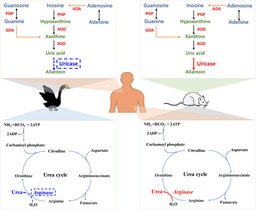Childhood Maltreatment, Obesity, and Type 2 Diabetes: How Early Adversity Shapes Long-Term Health
Published in Social Sciences and General & Internal Medicine

Obesity and type 2 diabetes (T2DM) are two of the biggest health challenges of our time. They have far-reaching effects on both individuals and society, contributing to healthcare costs, early mortality, and a diminished quality of life.
We’ve long known that childhood maltreatment - whether physical abuse, sexual abuse, emotional neglect, or other forms of trauma - can have a lasting impact on mental health. But it may also have a connection to physical health problems, including obesity and diabetes. Our recent study using data from the UK Biobank sheds light on this important link, with obesity playing a considerable role in the connection between early adversity and increased risk of T2DM later in life.
More Maltreatment Increases Health Risk
Our study reveals a pattern: the more types of maltreatment a person experienced as a child, the higher their chances of becoming obese and developing T2DM as an adult. People who reported three or more types of childhood maltreatment had a 55% higher odds of being obese in adulthood, compared to those with no reported maltreatment. These individuals were also 65% more likely to develop type 2 diabetes in adulthood. These associations remained when we adjusted for other mental health conditions like depression and PTSD.
The mechanisms that underlie the link between childhood adversity and obesity are complex. Previous studies have suggested that the trauma of maltreatment may lead to stress-induced overeating, or that the way our bodies process food may be disrupted by a chronic alteration in our stress hormone response, making it harder for people to maintain a healthy weight.
Obesity as a Mediator Between Maltreatment and Diabetes
Our study shows that obesity is a considerable mediator between childhood maltreatment and the development of T2DM in adulthood, if the associations are indeed causal. In other words, obesity may be a key pathway through which the effects of adversity are translated into physical health problems like diabetes. The study found that nearly 40% of the excess risk of T2DM in people with childhood maltreatment could be explained by their obesity. Therefore, if we can address obesity through public health initiatives in individuals who have experienced childhood maltreatment, we may be able to reduce their risk of developing T2DM later in life.
Broader Implications
The study has a number of important implications for health care providers and policy makers, in both preventative care and interventional care.
This study shows that prevention of childhood maltreatment could be an important element in reducing an individual's risk for obesity and T2DM. Up to now, research has predominantly focused on mitigating psychological harms, and so this study is an important step in exploring the later physical health harms. This also adds to the emerging understanding that physical and mental health are likely to be connected. Along with future research, these findings should be integrated into the development of health policies and strategies aimed at preventing child maltreatment and its long-term consequences.
In addition, the findings suggest that effective weight management intervention of people who have experienced maltreatment, could reduce their risk of T2DM. The study showed that among people who were maltreated, obesity is a modifiable mediator of the association with T2DM and therefore a potential intervention target.
In summary, the findings show the importance for health care providers and policy makers of a life-course approach that considers early childhood experiences and their potential impact on health in adulthood. This is applicable when looking at both the prevention of childhood maltreatment, and the prevention of obesity and diabetes.
Moving Forward: What needs to change?
Our findings support the notion that all healthcare professionals should be trauma-informed, that is, proactively attuned to the effects of childhood maltreatment even when working with individuals with physical health problems. For example, wider use of childhood adversity screening may be warranted in addition to the routinely checked traditional risk factors such as smoking, blood pressure and cholesterol. Clinicians need to be aware of the background to their patient’s presentation in order to provide holistic care.
We need more epidemiological research on how the timing, intensity and duration of childhood adversities affect future physical and mental health outcomes. In addition, basic science research to explore how these experiences shape our biology may hold the key to understanding the mechanisms of poor outcomes, and therefore help us develop nuanced and targeted interventions.
Conclusion
In conclusion, the study highlights the potential profound impact of childhood maltreatment on long-term physical health, particularly in relation to obesity and T2DM. The results underscore that childhood trauma is more than a psychological problem; it is a significant risk factor for chronic physical health problems.
Obesity represents a clear target for intervention as an important mediator between childhood maltreatment and T2DM. Addressing obesity through public health interventions, particularly among those who have experienced early adversity, may significantly reduce T2DM risk. Moreover, the study underscores the importance of adopting a trauma-informed approach in healthcare, whereby early life experiences are taken into account in both the prevention and treatment of health issues.
To facilitate progress, further research must be conducted to examine the biological processes linking adverse childhood experiences with poor health outcomes and to refine intervention strategies. The incorporation of these insights into public health policy and clinical practice has the potential to mitigate the long-term impact of childhood maltreatment and enhance both mental and physical health outcomes for future generations.
Follow the Topic
-
International Journal of Obesity

This is a multi-disciplinary forum for research describing basic, clinical and applied studies in biochemistry, physiology, genetics and nutrition, molecular, metabolic, psychological and epidemiological aspects of obesity and related disorders.





Please sign in or register for FREE
If you are a registered user on Research Communities by Springer Nature, please sign in